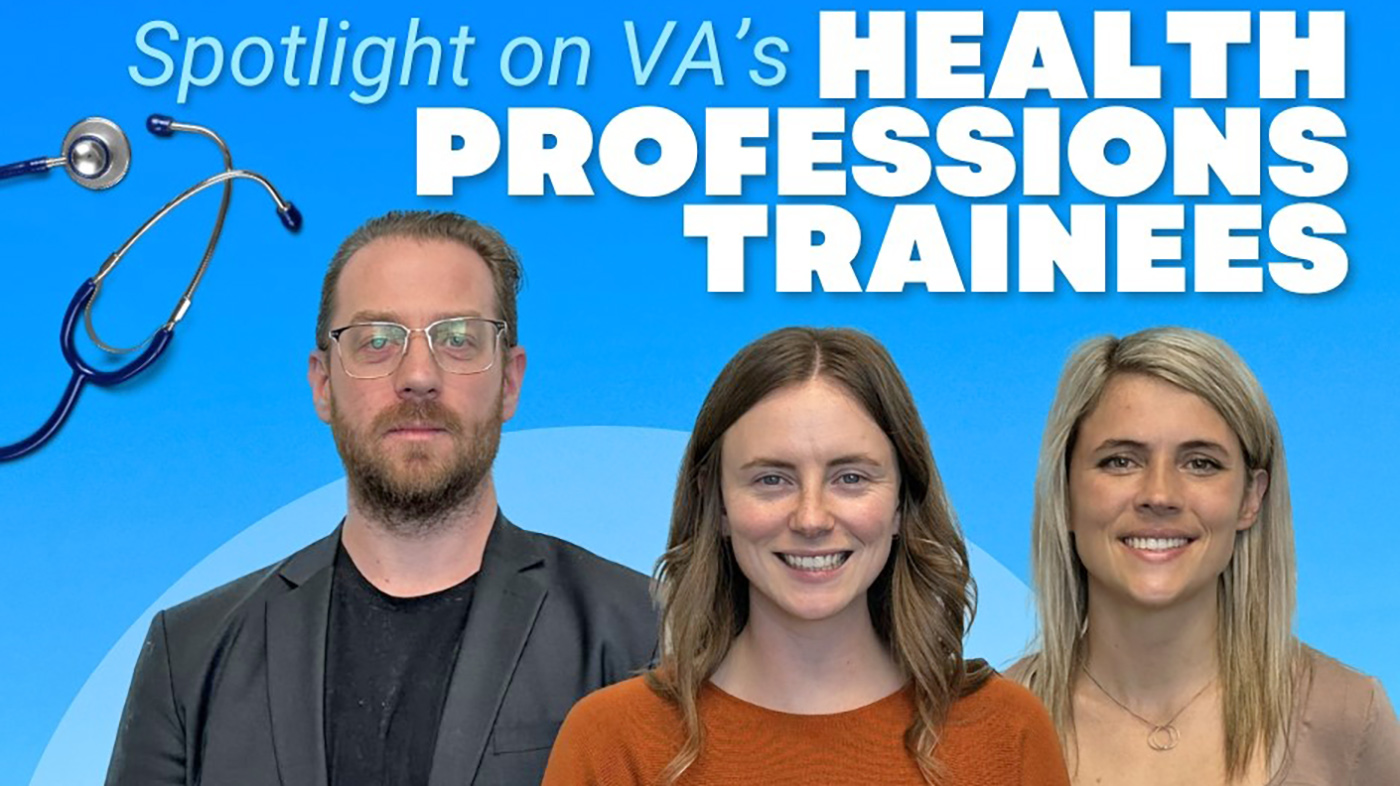Carlee Grimes knows her father and husband, both Veterans, are in the best hands with their health care needs at VA. She realized this firsthand this fall while serving as a health professions trainee at the Ernest K. Childers VA Outpatient Clinic in Tulsa, Oklahoma.
Grimes was a physician assistant student from Oklahoma State University on rotation in the clinic’s rheumatology department and was impressed to learn that each patient receives exceptional and thorough care.
“I really liked seeing how much time is given to each patient, as well as the time a provider reviews charts and connects with other specialties to make sure we are all on the same page in giving Veterans the best care we can,” she said. “I’m very thankful Veterans are getting that kind of service. To be so thorough with history-taking and physical exams with each patient—that has really stood out to me.”
Grimes plans to practice orthopedics, specializing in bone and joint pathology, and she believes VA training sets her up for success.
“Getting to study rheumatology is really helpful. I’m getting to see a lot of older Veterans who are good candidates for joint replacements as well as systemic inflammation management. This has been a great opportunity to see what the options look like in the VA world and help a deserving population I hadn’t seen before.”
“I feel like VA was calling my name.”
Fellow trainee Jadica Piela, a student from Northeastern State University Oklahoma College of Optometry, also valued her training with VA. An optometry resident and Veteran, she wanted to work with VA after serving in the National Guard—including a tour to Afghanistan.
“I have aspired to be a part of VA for a while. I feel like VA was calling my name, and that’s why I chose this area,” Piela said.
Piela believes her experience working with Veterans will allow her to handle tough situations due to great mentorship under the doctors with whom she works. “All of the doctors are great. Any one of them I would seek to learn under because they all have such a vast amount of knowledge to give the practicing physicians.”
“Veterans have sacrificed and we owe them good care.”
For Brandon Lee, VA health professions trainee and Veteran, working with Veterans is very important. Having worked within VA for two years at two different medical centers, Lee believes the training provides more than just an educational experience.
“It provides a litany of benefits. VA places such an emphasis on evidence-based practice that you know the training you are getting is what the relevant research is suggesting,” Lee said.
A graduate of Azusa Pacific University, Lee feels honored to work with an organization that really believes in evidence-based training and designs training around that. “It’s one thing to learn about that in school but to actually implement it for the benefit of the Veterans. That’s why I really got into this profession.”
Lee is training to become a clinical psychologist and has always had a “pull” to help Veterans. “I’ve sat on both sides of the fence now. And I think Veterans have sacrificed something pretty important for this country and we owe it to them to provide good care. So as hard as it is—and internship is hard—I leave every week feeling like I’m making a difference on a patient population that deserves it.”
Pictured above, from left to right: Brandon Lee, Carlee Grimes and Jadica Piela.
Over 70% of all physicians in the U.S. receive health care training with VA.
VA is a national leader in health professions education, setting the standard for physicians and health professions training in more than 60 professions with more than 1,400 educational institution affiliates to train future health professionals.
These academic affiliations, some of which began more than 75 years ago, are coordinated by VA’s Office of Academic Affiliations (OAA). Find out more about VA’s academic mission by visiting the Office of Academic Affiliations website.
Topics in this story
More Stories
The Medical Foster Home program offers Veterans an alternative to nursing homes.
Watch the Under Secretary for Health and a panel of experts discuss VA Health Connect tele-emergency care.
The 2024 National Veteran Suicide Prevention Annual Report provides the foundation for VA’s suicide prevention programs and initiatives.







I am glad the trainees are getting valuable experience so they can go on and make a grand income. What does the Veterans get from these trainees. The Veterans get their private medical records breached. They get sub medical treatment. One thing I did learn from this story is the VA admits that there is no doctor patient confidentiality.